9/11 Chinatown Documentation Project
This project includes interviews of people that lived or worked in the lower east side during the events on September 11th, 2001. The interviewees reflect on the tragedy and discuss how their lives and the lives of others in the community were affected by it. The interviews help to paint a portrait of how the New York Chinatown we know today was shaped by the events of that morning.
Rights & Usage:
All rights to the interviews, including but not restricted to legal title, copyrights and literary property rights, belong to the Museum of Chinese in America (MOCA). Interview can only be reproduced with permission from the Museum of Chinese in America (MOCA).
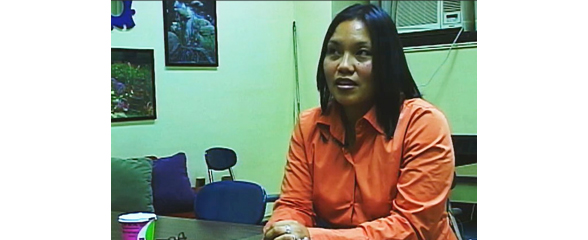
2014.036.011 Oral History Interview with Mirian Yau Oyola October 17, 2003
In this interview, Mirian Yau Oyola recounts her family’s migration from Guangdong, China to Panama and reminisces about her childhood growing up on a ranch and in a large Asian community in Panama. She chronicles her family’s eventual move to New York City, familial dynamics within a mixed family, the difficulties of cultural assimilation into American life with a Chinese stepmother, and the stark contrasts between life in Panama and America. Growing up in Brooklyn, she recalls how her neighbourhood was segregated by ethnicity down to the streets that they lived on, illegal child labor in Chinatown sweatshops, and a family scandal that created an irreconcilable rift. She recalls her involvement with the Chinatown YMCA, work as a youth counselor, and the waves of ethnic Chinese immigrants over the decades. Mirian reflects on the duality of her life being of mixed race (half Chinese and half Hispanic), the cultural expectations placed on her, her struggles with cultural identity, and the distinct emptiness she felt not being fully of either cultures. Mirian vividly recounts the day of September 11th, to which she was an eyewitness, and the confusion and mad scramble to reunite lost children to their parents that followed. She explains her patriotism and describes all the ways that she is proud. She recalls the fears that she felt for many of the children in Chinatown and surrounding neighborhoods in the aftermath of the events.
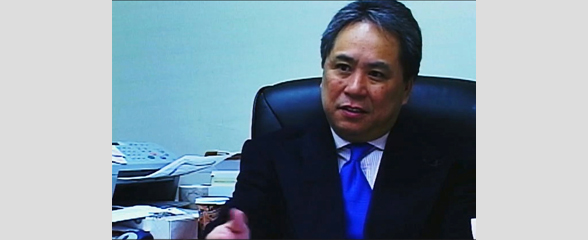
2014.036.013 Oral History Interview with Tony Wong April 1, 2004
Tony Wong, General Manager at Sino Television, was born and raised in Hong Kong. He immigrated to the United States to study broadcasting at both the undergraduate and graduate level. Tony recalls his initial struggles as a student coming from a poor economic background and how he eventually moved to New York City, receiving a job offer at NBC right after graduation. During his time at NBC and in Sino TV as a part-timer, Tony would learn a myriad of skills including production, directing, and programming. Tony would eventually move on to work at different companies before returning to Sino TV as a full-time employee. He would describe Sino TV’s area of operation, and programming variety, and emphasize their stance on being politically and culturally neutral regarding the different Chinese communities and political views. Later in the interview, Tony shares his thoughts on Chinese unity and stereotypical “passiveness†and observes a change in this following the 9/11 attacks. Tony notes that following the 9/11 attack, the Chinese community banded together to help local recovery and rescue operations and fundraised 1.5 million dollars for the World Trade Center Fund and the American Red Cross. He also highlights other efforts to create programs that promoted Chinese activism for not only disasters but also for political purposes.
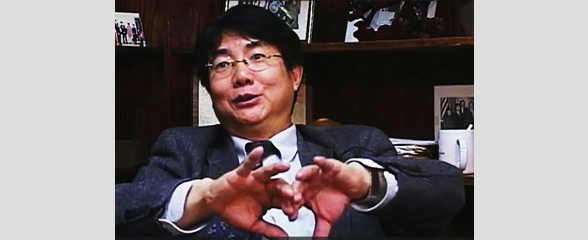
2014.036.014 Oral History Interview with David Chen July 10, 2003
During the interview, David Chen discusses his experience as a Chinese American activist and director of the Chinese-American Planning Council (CPC), and his theory of activism. When Chen was younger, he rarely spoke. He would always wait for someone else to say the right thing, to which he would then agree. One time, as a younger student, he was forced to present a project because two of his partners did not show up. One of his classmates expressed how well-spoken he was and at that moment, Chen realized that his voice could be heard. Chen believes that in order to be an activist for peace and justice, one must see the bigger picture. Effective activism should start with institutions because that is how change can be enacted. He believes that anyone can be an activist as long as they talk, remember, observe, and are skeptical of organizations. He states that while spontaneous change comes from the bottom, sustaining change comes from the top, more specifically, from organizations. Chen joined the Organization of Chinese Americans in order to advocate for what he wanted to stand for and speak freely on those subjects. However, he also believes that a successful organizer does not talk too much because activism is about observing the smaller issues. As an activist, he believes that trust must be gained from individuals. Chen agrees that the Asian American rights movement was inspired by the Civil Rights Movement. Overall, he believes that society as a whole has become more willing to change and hopes that individuals, especially young activists, continue to act, give voice, and intellectualize.
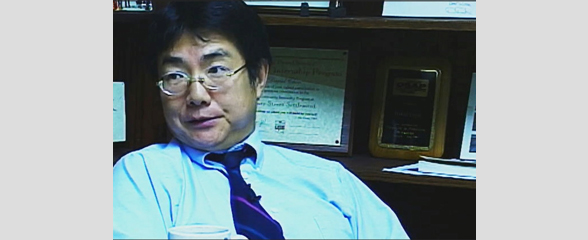
2014.036.015 Oral History Interview with David Chen July 13, 2004
In this interview, David Chen discusses his work at Chinese-American Planning Council (CPC) as an activist in New York City Chinatown. Chen is the director of CPC, a private organization started in 1965 serving the public and focusing on low-income immigrant families, mostly Chinese. Services offered include language classes, translations, daycare centers, job training for adults, senior citizen care, childcare, and Meals on Wheels. Prior to his work at CPC, Chen worked for the mayor in Chicago. While there, he constantly questioned why there was no Chinese funding. While in college, Chen studied to be a social worker and community organizer. He explains that he was not good at chemistry and did not want to pursue medicine or law like his parents expected him to. During college, he and his friends volunteered in Chicago Chinatown, which is much smaller than New York City. In Chicago Chinatown, Chen and his friends taught English classes but there were not many job opportunities in the community, so he decided to work for the government. On a visit to New York City, Chen fell in love with how densely populated and large Chinatown was and was told that there were many job opportunities available. He applied for a position at CPC as a youth director twenty-three years ago, accepted the role, and moved to New York City. Chen was part of "Project Reach", which was an at-risk prevention program for troubled kids. He describes Chinatown as a transient neighborhood in that there is constantly an influx of Chinese immigrants every few years. CPC serves those immigrants by helping them get entry-level jobs and helping them get their foot in the door. By doing so, he hopes that secure immigrants who have gotten aid from CPC would be able to help the next wave. Asked about his upbringing, Chen shares that he is from an upper-middle class family and that his father was an engineer. He was originally born in Shanghai but his family moved to Hong Kong while he was a baby. He came alone to the United States during his final year of high school and focused on school in order to avoid being drafted into the Vietnam War. The last part of the interview briefly covers 9/11. Chen notes that in the recovery and aftermath, Chinatown was largely ignored although it was an adjacent neighborhood to the World Trade Center. Chen also describes how important Chinatown is to tourism because of its restaurants and shopping venues.
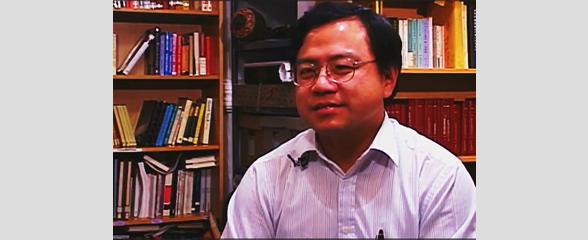
2014.036.016 Oral History Interview with Wing Ma November 7, 2003
Wing Ma (Ma Wing Guo) was born in China to a poor farming family who moved to Hong Kong as refugees when he was age two. Wing talks about his life growing up in Hong Kong with his mother working in the garment industry and his father working as a chef in Manila. He studied until post-secondary school before moving to the United States to train and work as an engineer. Wing would eventually join the garment industry as a factory owner, and describes the industry decline over time due to overseas competition. This would also lead to his own factory closure. He details workers pay, union benefits such as healthcare, and his involvement with union negotiations as a member and president of the Garment Manufacturers Association. Wing also talks about his involvement with other community organizations following his transition into the liquor industry, such as the Asian American Advisory Council under Peter Vallone and Community Board Three. He shares his experiences acting as a liaison between the government and the local community and shares some of the positive changes this brought to Chinatown. During the September 11th, 2001 attacks, he recalls being shocked and upset that he was unable to reach friends and loved ones. He talks about the effects of the attacks on Chinatown through his personal experiences as a building landlord. He recalls the mass exodus of tenants from the area and the difficulty in obtaining support from relief funds for the Chinatown community. He discusses the need for the government to subsidize and support businesses returning to the area to improve the local economy. He also encourages the Chinatown community to become more active and participate in local government or social work. He concludes with a discussion of his thoughts on the future of the garment industry and alternative job prospects for Chinatown residents.
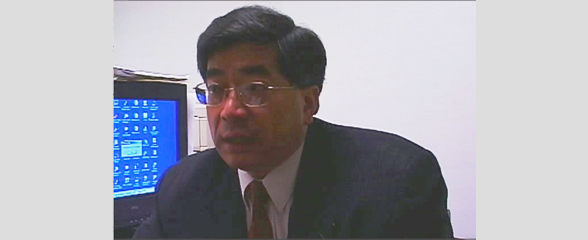
2014.036.017 Oral History Interview with William Chiu, March 30, 2004
William Chiu, born in 1952, begins this interview recalling his childhood growing up, learning and working in Hong Kong. He talks about his father’s work as a chef and his father’s fateful opportunity to immigrate with his family to the United States. He describes his education and reasoning for desiring to go to the United States. William recounts his first job working as a waiter in training before beginning to work with his father in the restaurant business. He also describes the working conditions and his experiences dealing with discrimination towards Chinese people during his time in Chinatown and the Bronx. William and his father would eventually open a Chinese takeout restaurant in Long Island near the Stony Brook area, with William working the front and his father working the back. He expanded his enterprises following his father’s passing and started businesses in real estate, travel, and food imports. He reflects on the impact of the 9/11 attacks on Chinatown and the economic downturn it has caused residents as well as the businesses he owned. William also describes the community advocacy work he has done for the Chinatown community, especially in police relations. He concludes the interview with his thoughts on Chinese unity and hopes that his children would carry on the family’s cultural values.
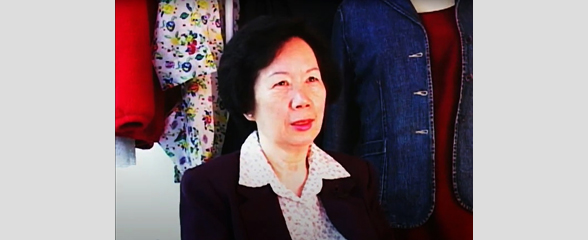
2014.036.018 Agnes Wong May 21, 2004
Agnes Wong is a Chinese American who immigrated to the United States to start a new life with her husband in 1974. In this interview, she discusses the circumstances leading to her immigration and involvement with the garment industry. Agnes talks about her experience working in Chinatown’s garment factories, her participation in the International Ladies Garment Workers Union, and her perceptions of Chinatown throughout the many decades she worked there. Chinatown’s garment factories suffered economic hardships following the September 11 terrorist attacks and Agnes describes her experience as a garment worker during those difficult years.

2014.036.019 Oral History Interview with Alice Young July 1, 2004
Alice Young is a career teacher and principal who has lived most of her life in Brooklyn. She begins the interview by sharing the story of her family’s immigration to the United States and about her family’s laundry business. Alice reminisces about her childhood and school life leading up to her time at Brooklyn College, where she studied to become an elementary school teacher. As an NYC school teacher, she worked in different boroughs including Staten Island, Brooklyn, and Manhattan. She would eventually become a school administrator for District 2 of New York City. Alice recalls her experience during the 9/11 Terrorist Attacks and describes the school environment and student behavior immediately after the tragedy. Alice describes the many different programs and events that were funded through various federal, state, and local agencies that helped them serve the Chinatown families who were severely impacted in the aftermath of the attacks.

2014.036.021 Oral History Interview with May Ling
In this interview, May Ling discusses her life as a Chinese immigrant in Brooklyn, New York. Ling talks about her personal life, family, job, 9/11, Chinatown, New York City, and cultural barriers that she faced when coming to America. She talks about her Chinese and American identity as well as her occupation as a teacher.

2014.036.022 Oral History Interview with S.W. Sang March 11, 2004
S.W. Sang is a local Chinatown jewelry merchant who arrived in the United States during the 1970s. In this interview, he talks about his life as a migrant, moving from country to country, including China, Macau, and the Dominican Republic before finally settling in New York City. Sang was trained as a jeweler at a young age in the Dominican Republic and would eventually establish his business in Manhattan, operating stores in Harlem and Chinatown. As Sang expanded his business in Chinatown, he became more involved with community affairs and helped to establish associations that protected the interests of Chinatown locals and businesses. Sang also discusses the impact of the 9/11 terrorist attacks and its effects on the local economy of Chinatown.